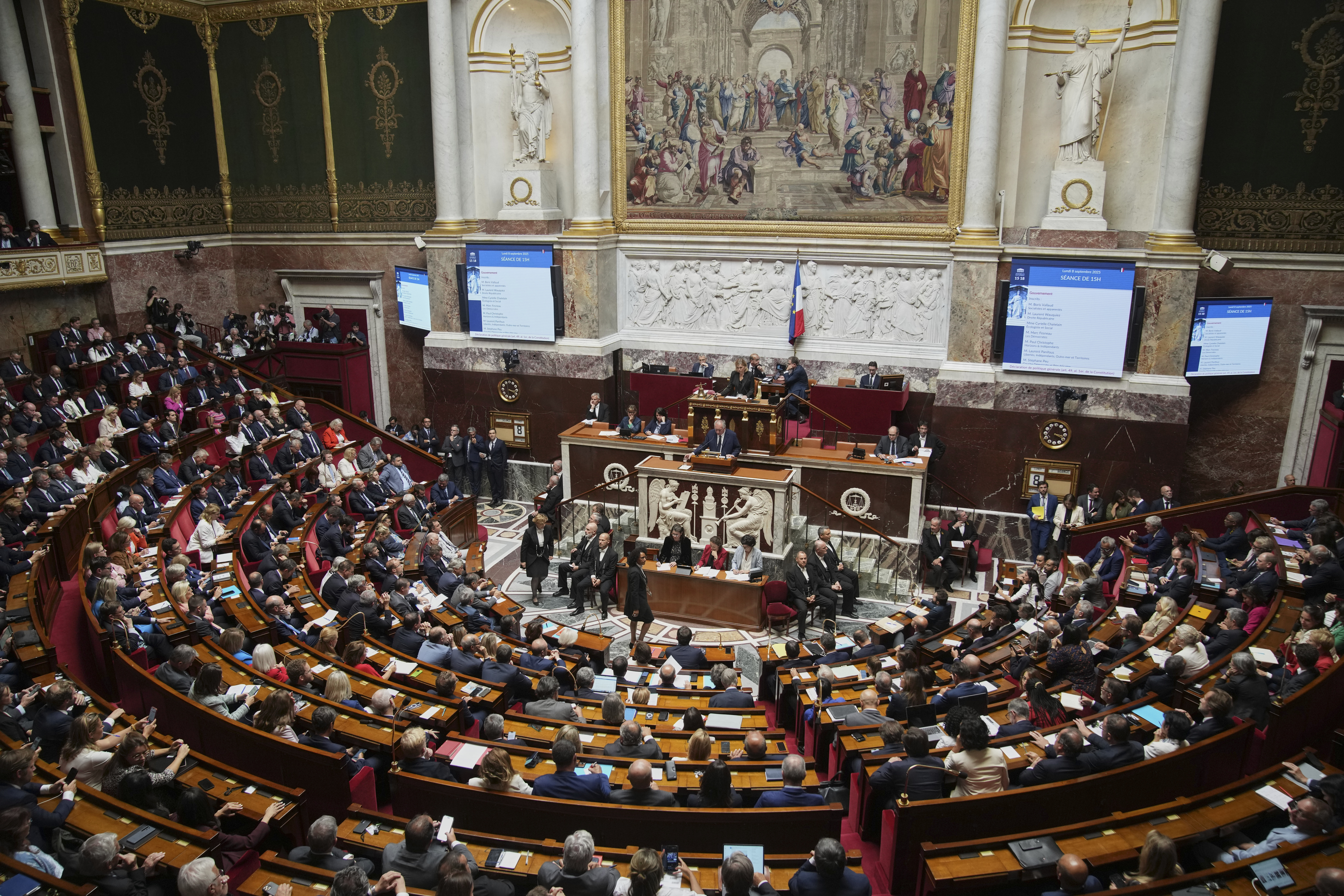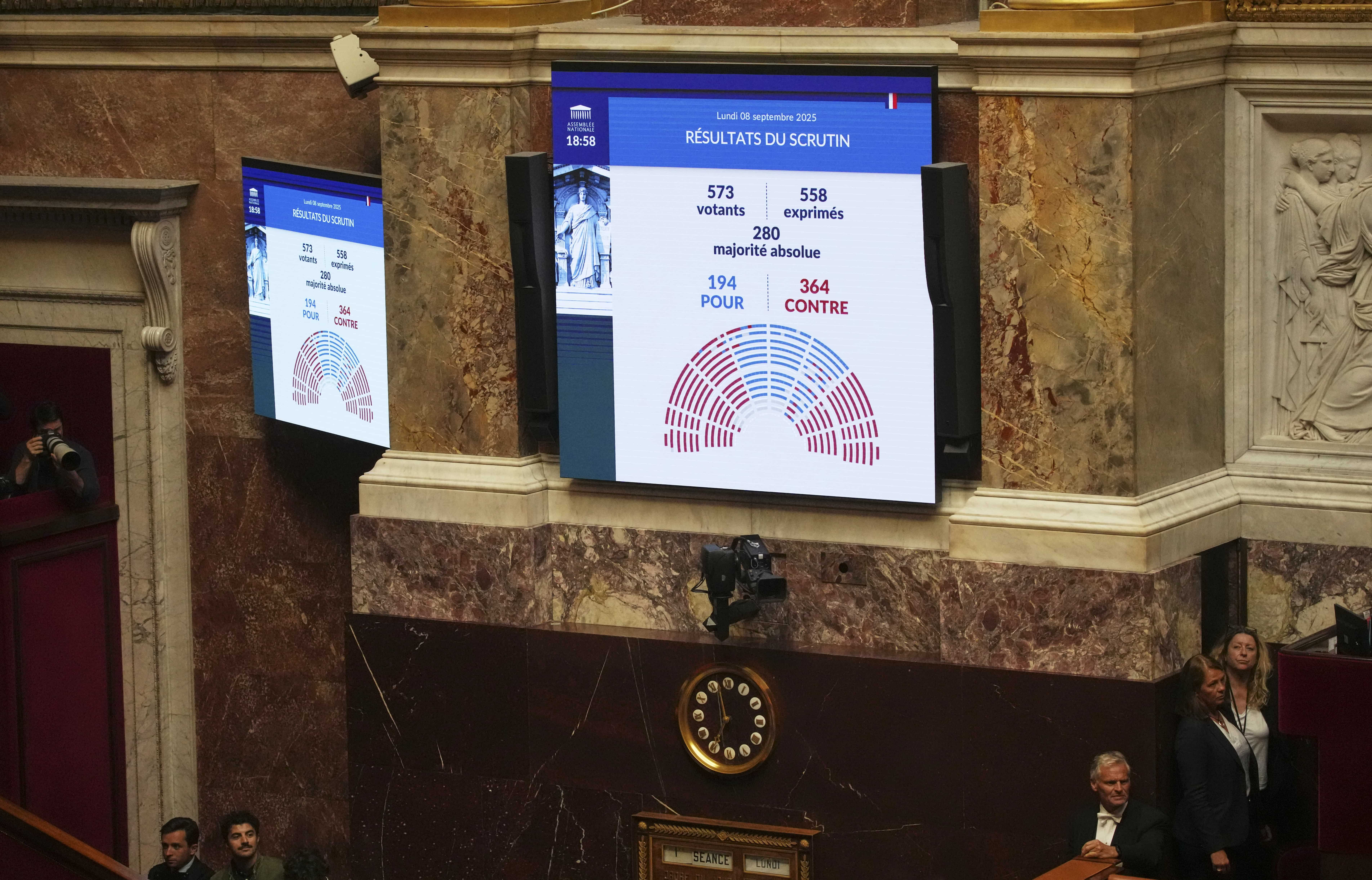
PARIS - French President Emmanuel Macron is seeking his fifth prime minister in less than two years after opposition parties united to oust centre-right prime minister Francois Bayrou over his unpopular plans for budget tightening.
Bayrou, handed a 364-194 defeat in a parliamentary confidence vote on Monday, will officially hand in his resignation to Macron on Tuesday.
ALSO READ: France faces more turmoil with government on brink ahead of confidence vote
Whoever Macron picks to succeed him will face the near impossible task of uniting parliament and finding ways to get a budget for next year adopted. France is under pressure to lower a deficit that stands at nearly double the European Union's 3 percent ceiling, and a debt pile equivalent to 114 percent of GDP.
Defense Minister Sebastien Lecornu's name was among those circulating for the next prime minister, with Macron's other options being to pick someone from the center-left, or a technocrat.
There are no rules governing who the president should choose, or how fast. Macron, 47 and in office since 2017, will appoint his new prime minister in the next few days, his office said on Monday.
The Socialists were among those saying it was their turn to govern. "I would like it to be the left, the greens. We need to claim power," Socialist Party chief Olivier Faure told France Inter radio.

The far-right National Rally meanwhile repeated its call for a snap parliamentary election, which Macron has so far ruled out. Dissolving parliament "is the only way, the best way, to get out of a political crisis," party leader Marine Le Pen told reporters.
Macron's decision last year to call a snap parliamentary election only resulted in a more fragmented parliament.
Market reaction was relatively muted in early trading on Tuesday, with Bayrou's departure already largely priced in. The next test will be Fitch's decision on France's sovereign rating on Friday.
'Let’s block everything'
French businesses are worried about the impact of the political crisis.
"The fall of the government adds to months of political instability that have already undermined economic confidence," said Maya Noël, of tech lobby France Digitale. "In the innovation sector, this instability has an immediate cost: it slows down investment and hiring."
The country was also gearing up for "Let's Block Everything" anti-government protests on Wednesday, which have mushroomed on social media in a potential echo of widespread anti-Macron "Yellow Jacket" protests that shook the country in 2018-2019.
The protesters have no centralized leadership, meaning it is hard to assess how big or disruptive the demonstrations may be. Paris police chief Laurent Nunez told BFM TV that 80,000 police would be deployed across the country, with authorities fearing attempts to block some main roads and train stations, and possible violent actions.
For some protesters, the "Block Everything" movement is about asking for change.
"Now that the change of the prime minister is a done deal, they need to get rid of what's higher up ... that's a message for Macron," 61-year-old protester Alain Petit said at a "farewell drink" for Bayrou organised in Clermont-Ferrand, in central France, late on Monday.
Other such "farewell drinks" for Bayrou were organised in front of city halls across the country, with people there saying they were gearing up for Wednesday's protests.
Labour unions have also announced a day of strikes and protests on September 18.


